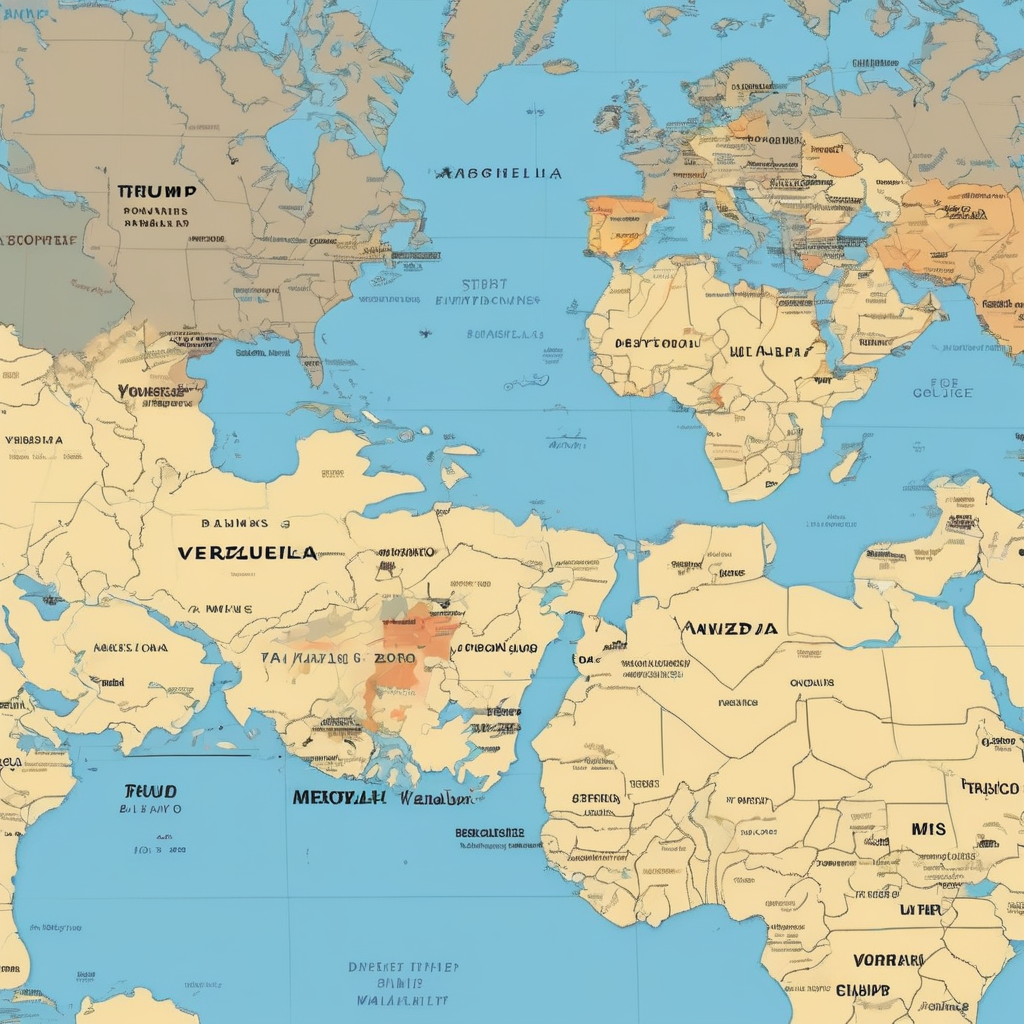President Donald Trump has denied allegations suggesting that he is considering military strikes in Venezuela, a statement that contrasts with his prior comments as tensions rise around U.S. military involvement in combating drug trafficking in the region. The United States has recently increased its military presence in the Caribbean, deploying fighter jets, warships, and thousands of troops, with plans to further bolster its operations with the Gerald Ford aircraft carrier strike group.
When asked by reporters on Air Force One about the validity of claims regarding potential strikes in Venezuela, Trump firmly stated, “No.” However, the vague nature of his response leaves room for interpretation, potentially indicating either a dismissal of immediate military actions or a lack of finalized decisions on the matter. Previously, Trump had suggested that his administration was ready to take measures against drug-related targets in Venezuela, asserting that “the land is going to be next,” signaling a tough stance on drug trafficking.
The U.S. military has already conducted operations targeting at least 14 boats purportedly connected to the illegal drug trade, resulting in the deaths of 61 individuals. Trump had also authorized the CIA to engage in covert missions within Venezuela, prompting concerns over U.S. military interventions. The prospect of military action in Venezuela raises significant legal and ethical questions, especially as the Venezuelan government denounces these interventions as violations of its sovereignty.
In light of these developments, the United Nations Security Council has become involved, with Venezuela formally requesting the council to deem recent U.S. military operations illegal. The strained relations between the U.S. and Venezuela reflect broader geopolitical challenges, particularly revolving around drug trafficking and humanitarian issues. Venezuelan officials contend that U.S. military interventions worsen the humanitarian crisis, while advocates are calling for diplomatic solutions that consider both the enforcement of drug laws and the urgent humanitarian needs of the Venezuelan people.
Amid ongoing military operations, there is a growing hope for diplomatic engagement that might bridge the existing divide. It is critical to address the intricate connection between national security measures and the pressing humanitarian challenges faced by those in Venezuela. As the situation evolves, fostering constructive dialogue could prove essential for stabilizing relations and relieving the humanitarian plight currently experienced in the region.
